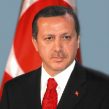
TOWARD A NEW ERA IN TURKISH-IRAQI RELATIONS?
Publication: Eurasia Daily Monitor Volume: 5 Issue: 136
By:

Turkish Prime Minister Recep Tayyip Erdogan’s recent visit to Iraq has initiated a new chapter in bilateral relations. Several problems, including the Kurdish question, the Iraq-Iran war, and Turkey’s support of the U.S.-led international coalition during the first Gulf War in 1991, have made relations between Turkey and Iraq bumpy. During the previous visit of a Turkish prime minister to Baghdad 18 years ago, Saddam Hussein harshly criticized Turkey’s foreign policy and threatened his guest in front of international media correspondents. For at least the past three decades, Turkish-Iraqi relations have been shaped by regional or border crises. The “strategic, economic cooperation and integration agreement” signed during Erdogan’s visit can finally move Turkish-Iraqi relations beyond a crisis-related agenda.
With this agreement, the parties decided to develop institutions between the two countries to build a sustainable relationship. Iraqi Deputy Prime Minister Barham Salih, a Kurd himself, thinks that “the agreement of integration” is important for two main reasons. First, integration between Turkey and Iraq would connect the Persian Gulf to Europe. Second, it would open a way to develop a regional economic union, which has the potential to bring democracy and economic prosperity not only to Turkey and Iraq but to the Middle East in general (Milliyet, July 11).
The components of the agreement include regional security, fighting terrorism, controlling the borders, and ensuring joint interests in terms of oil and water resources, border crossings, trade exchanges, cultural activities, and the role of Turkish companies in reconstructing Iraq (BBC Monitoring, https://news.bbc.co.uk/2/hi/middle_east, July 11). The agreement calls for the formation of a High Level Cooperation Council. In addition, under the leadership of the two prime ministers, the agreement anticipates holding “strategic council” meeting once a year and three meetings between ministers who work in the same areas (Anadolu Ajansi, July 16). Given that the last high level meeting between the two countries took place 18 years ago, the annual meeting between prime ministers seems to be very good progress.
As Iraqi Minister of State for National Security Affairs Shirwan al-Waili said, “The agreement to form the Higher Strategic Cooperation Council clearly indicates the two countries’ eagerness to strengthen their bilateral relations and steer them in the right direction. Certainly this will benefit the two neighboring countries and promote the interests of the two peoples” (BBC Monitoring, https://news.bbc.co.uk/2/hi/middle_east, July 11). Erdogan has “already set the target in mind that Turkey should sign a free trade agreement, join the prospective free trade zone in Iraq, and increase the $5 billion trade volume to $25 billion in the short run.” (Turkish Daily News, July 14)
It seems that the first step toward integration is going to be energy transfers from Iraq to Europe. As part of the “strategic and economic integration agreement” Turkey and Iraq have signed an energy agreement to upgrade the capacity of the Kirkuk-Yumurtalik oil pipeline from 800,000 barrels of oil a day to 1 million barrels. Erdogan said that “in the future this will increase even more. Now we have to improve this tie and build additional pipelines on the same route. We are launching feasibility studies right away” (Referans, July 12).
As part of the energy deal, the state-owned Turkish Petroleum Company (TPAO) will be allowed to drill for oil in the southern part of Iraq. This will make the TPAO one of 35 international companies permitted to drill for oil in Iraq. In addition, the TPAO will import 3,000 barrels of high quality Iraqi oil per day and mix it with lower-quality Turkish oil to be sold on the international oil market. The agreement also allows the TPAO to import 150,000 tons of fuel oil a year (Sabah, July 12).
The international media think that “the Turkish visit seemed more symbolic than substantive. The prickly issue of the Kurdish fighters on Iraqi soil was not directly addressed in the talks” (International Herald Tribune, July 11) The Turkish media reported, however, that Erdogan thanked the Iraqi central government and the Kurdish Regional Government for their support against the Kurdistan Worker’s Party (PKK) and that this was warmly welcomed by Iraqi Kurds (CNNTurk, July 10).
Because of Iraq’s current instability, the agreement may not produce anticipated results in the short run. The agreement is backed by the United States as a means of deterring Turkey from signing energy agreements with Iran (EDM, June 17). It was, in fact, one of the issues that were discussed in the Turkey-United States Economic Partnership Commission Action Plan in 2007. At this meeting it was decided that “The U.S. State Department will start working with Turkish Ministry of Energy and Ministry of Foreign Affairs to form a study group to examine natural gas production in Iraq and its delivery to Turkey and Europe through Turkey” (turkey.usembassy.gov, May 25, 2007). Parallel to this vision, Turkey has launched a feasibility study for a natural gas pipeline connecting northern Iraq’s gas fields to the Turkish port, parallel to the oil pipelines. Turkey is eyeing Iraq’s gas as it further solidifies its role as a main transport hub for the world’s hydrocarbons (UPI, January 28).
Although skeptics may still question whether the “strategic integration agreement” will produce any tangible results, such agreements between Iraq and Turkey are strongly backed by the United States; and the accord strengthens Turkey’s broader strategic plans to be a main transport hub for the world’s energy lines. For Iraq the agreement would integrate the country into Europe, as Turkey moves toward the European Union. If the current problems, i.e., the PKK and Iraq’s internal security, do not jeopardize it, the “strategic, economic cooperation and integration agreement” will open a new chapter in Middle Eastern affairs in general and Turkish-Iraqi relations in particular.




